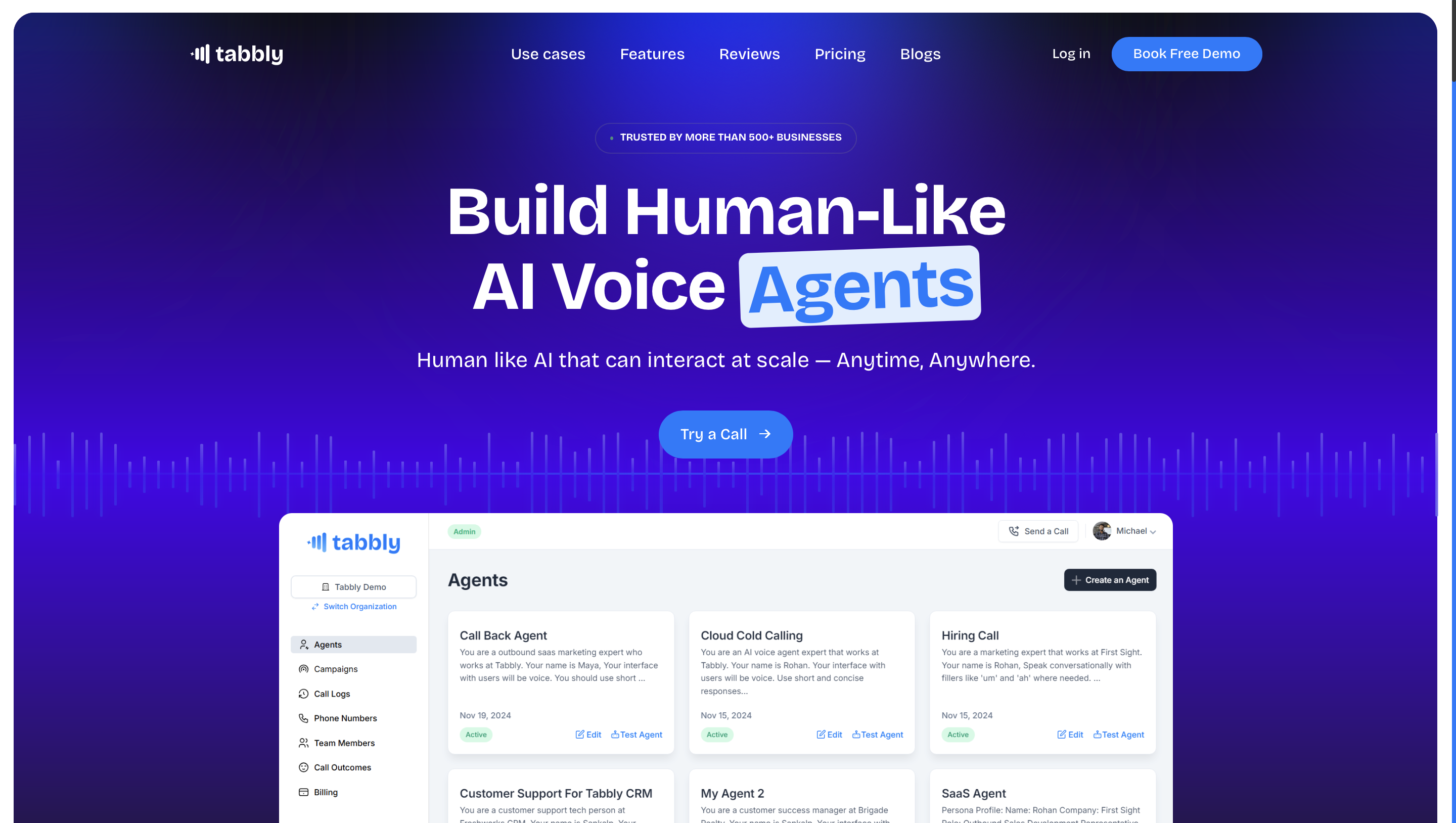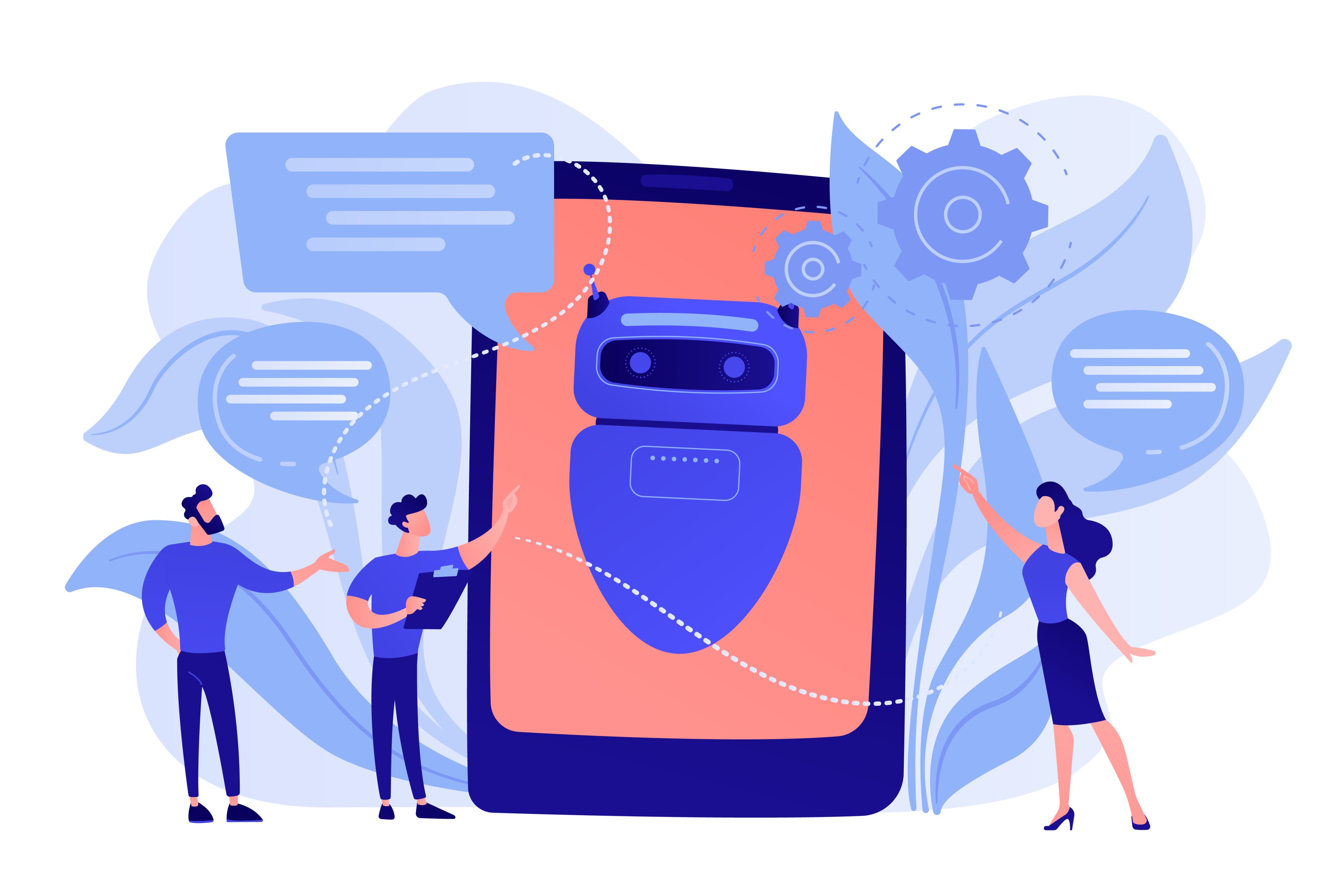The real estate industry has always been about connections—connecting buyers to homes, sellers to markets, and agents to clients. But as technology continues to evolve, a new player is stepping into the scene: AI voice agents. These intelligent, conversational tools are transforming how real estate professionals operate, how clients interact with the market, and how deals get done. In this blog, we’ll explore what AI voice agents are, how they’re being used in real estate, and why they might just be the future of the industry.
What Are AI Voice Agents?
AI voice agents are software programs powered by artificial intelligence that can understand and respond to human speech. Think of them as super-smart virtual assistants—like Siri or Alexa, but with a twist. These agents use natural language processing (NLP), machine learning, and vast data sets to hold conversations, answer questions, and even perform tasks. In the context of real estate, they’re designed to assist with everything from scheduling tours to qualifying leads, all through the power of voice.
Unlike traditional chatbots that rely on text, AI voice agents bring a human-like touch to interactions. They can pick up on tone, adapt to accents, and provide a seamless experience over the phone or through smart devices. For an industry as personal and relationship-driven as real estate, this technology is a game-changer.
How AI Voice Agents Are Transforming Real Estate
- 24/7 Client Support: Real estate doesn’t sleep, and neither do AI voice agents. Whether a potential buyer calls at midnight with questions about a listing or a seller wants an update on their property’s status, AI voice agents are there to respond. They can provide instant answers about square footage, pricing, or neighborhood details, freeing up agents to focus on higher-value tasks.
- Lead Qualification Made Easy: Not every inquiry turns into a serious client, and sifting through leads can be time-consuming. AI voice agents can ask the right questions—Are you pre-approved for a mortgage? What’s your budget? When are you looking to move?—and qualify leads before passing them on to an agent. This ensures that agents spend their energy on the most promising prospects.
- Personalized Property Recommendations: Imagine a buyer saying, “I want a three-bedroom home under $500,000 near a good school,” and the AI voice agent instantly responds with a curated list of properties that match. By integrating with real estate databases and MLS systems, these agents can analyze preferences and deliver tailored suggestions in real-time, mimicking the expertise of a seasoned Realtor.
- Streamlined Scheduling: Coordinating showings can feel like herding cats, especially with multiple parties involved. AI voice agents can handle this effortlessly, syncing with calendars to book tours, sending reminders, and even rescheduling if plans change—all without human intervention.
- Enhanced Marketing Efforts: Sellers want their homes to stand out, and AI voice agents can help. Some platforms allow agents to create virtual tours narrated by an AI voice, guiding potential buyers through a property’s features over the phone or a smart speaker. It’s like having an open house available anytime, anywhere.
Key Features of AI Voice Agents in Real Estate
AI voice agents are tools that use voice to help with real estate jobs. They talk to people, answer questions, and do tasks for agents and clients. They’re fast, smart, and easy to use. Here’s what they do, explained step by step.
1. Always On (24/7 Help)
Real estate happens anytime—day or night. AI voice agents don’t need breaks, so they’re always ready. If a buyer calls at 3 a.m. asking, “How much is that house?” or “How many bedrooms?” the AI gives the answer right then. It knows details like price, size, or location from the listings. For agents, this means they don’t have to wake up or stop what they’re doing. The AI handles calls and keeps clients happy, no matter the hour.
2. Finds Serious Buyers
Lots of people ask about houses, but not all are ready to buy. Agents can waste time on these calls. The AI steps in like a filter. It talks to people and asks simple questions: “Do you have a loan ready?” “How much can you spend?” “When do you need a house?” If the answers show they’re serious—like they’ve got money and a plan—the AI sends them to the agent. If not, it says, “Call back when you’re ready.” This way, agents only talk to people who mean business.
3. Matches Homes to You
Finding the right house can take forever. With an AI voice agent, it’s quick. You tell it what you want: “I need a three-bedroom house under $400,000 near a park.” The AI listens, then checks real estate lists—like the MLS—super fast. It finds houses that match and tells you about them: “Here’s one with three bedrooms, $375,000, two blocks from a park.” It’s like having a friend who knows every house for sale and picks the best ones for you.
4. Books Showings
Setting up a time to see a house is tricky. Buyers, sellers, and agents all have different schedules. The AI makes it simple. You say, “I want to see the house tomorrow.” The AI looks at everyone’s calendars—yours, the agent’s, the seller’s—and finds a time that works, like 2 p.m. It books the visit, sends a text or call to remind you, and changes the plan if someone cancels. No back-and-forth calls—just tell the AI, and it’s done.
5. Helps Sell Houses
Selling a house means showing it off. AI voice agents can help with that. They talk about the house for buyers who can’t visit. You call, and it says, “This house has a big living room, a new kitchen, and a backyard.” Some can even guide you through a virtual tour over the phone or a smart speaker, pointing out things like “The garage fits two cars.” It’s like a salesperson who’s always on, making the house sound great to anyone listening.
Bonus: Speaks Many Languages
Real estate isn’t just local anymore—people buy and sell across countries. AI voice agents can talk in lots of languages. Companies like Tabbly make ones that speak over 50 languages, like Spanish, French, or Mandarin. If a buyer from another country calls, the AI chats in their language, answers their questions, and helps them understand the deal. This lets agents work with more people, no translator needed.
Why It’s Helpful
AI voice agents make real estate easier for everyone. For agents, they take away boring jobs—like answering the same questions or juggling schedules—so they can focus on meeting clients and closing sales. For buyers and sellers, it’s all about speed and convenience. You get answers right away, find houses fast, and set up tours without waiting. The AI talks like a person, so it feels friendly, not like a cold machine. It’s a tool that saves time and keeps things moving, like a helper who’s always there.
The Benefits for Agents and Clients
For real estate agents, AI voice agents are a productivity booster. They handle repetitive tasks, reduce response times, and allow agents to scale their businesses without burning out. For clients, the appeal lies in convenience and speed. In a fast-moving market where timing is everything, getting instant answers or scheduling a tour on the spot can make all the difference.
Plus, there’s a human element that resonates. Hearing a friendly, knowledgeable voice (even if it’s artificial) can build trust in a way that text-based bots often struggle to achieve. It’s technology with a personal touch—perfect for an industry built on relationships.
Challenges and Considerations
Of course, AI voice agents aren’t without their hurdles. Privacy is a big one—clients might hesitate to share personal details with a machine, especially over the phone. Accuracy is another concern; while the technology is impressive, it’s not infallible. Misheard words or misunderstood requests could lead to frustration. And let’s not forget the human factor—some people simply prefer talking to a real person, especially for high-stakes decisions like buying a home.
There’s also the question of cost. Developing or subscribing to an AI voice agent platform requires investment, which might be a barrier for smaller agencies or independent agents. However, as the technology matures and becomes more accessible, these challenges are likely to shrink.
The Future of AI Voice Agents in Real Estate
We’re just scratching the surface of what AI voice agents can do. In the near future, we might see them negotiating offers (within set parameters, of course), analyzing market trends to advise sellers on pricing, or even integrating with smart home devices to showcase features like “turn on the lights” during a virtual tour. As AI continues to learn and adapt, its role in real estate will only grow.
For now, the technology is a powerful ally—a tool that enhances, rather than replaces, the human expertise of real estate professionals. It’s about working smarter, not harder, and delivering a better experience for everyone involved.
Spotlight on Tabbly: Your AI Voice Agent Partner
If you’re looking to bring AI voice agents into your real estate business, companies like Tabbly are leading the charge. Tabbly is an AI voice agents company that specializes in creating human-like, conversational tools tailored to your needs. With Tabbly, you can build voice agents in minutes that speak naturally in over 50 languages, handle customer inquiries, book appointments, and even integrate with your existing systems. Whether you’re a solo agent or a large brokerage, Tabbly’s user-friendly platform helps you automate routine tasks, delight clients with seamless interactions, and expand your reach globally—all while keeping costs low with a pay-per-minute model. Ready to see how Tabbly can transform your real estate operations? Book a demo today and step into the future of client engagement!
Final Thoughts
AI voice agents are ushering in a new era for real estate, blending cutting-edge tech with the industry’s timeless focus on service. They’re not here to take over, but to amplify what agents and clients can achieve together. Whether you’re a Realtor looking to streamline your workflow or a buyer hunting for your dream home, this technology is worth watching. The future of real estate isn’t just digital—it’s vocal, too.
What do you think—would you trust an AI voice agent to help you buy or sell a home? Let’s keep the conversation going!
FAQs
How do AI voice agents differ from chatbots?
Unlike chatbots that rely on text, AI voice agents use voice recognition and natural speech to interact with users, offering a more personal and hands-free experience, which is ideal for busy clients or agents on the go.
Can AI voice agents really replace human agents?
No, they’re designed to complement, not replace, human agents. They handle repetitive tasks like answering FAQs or scheduling, allowing agents to focus on building relationships and closing deals.
Are AI voice agents secure for handling client data?
Reputable providers prioritize security with encryption and compliance measures, but it’s wise to review a platform’s privacy policies to ensure client data is protected.
How much does it cost to use AI voice agents?
Costs vary—some platforms charge per minute of use, while others offer subscription models. For example, Tabbly operates on a pay-per-minute basis, making it scalable for businesses of all sizes.
Do AI voice agents work in multiple languages?
Yes, many advanced platforms, including Tabbly, support over 50 languages, enabling agents to serve diverse, global client bases with ease.









